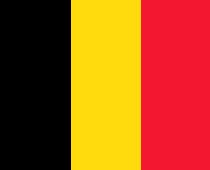Nog nooit stonden zoveel strandbars aan de Belgische kust. De regels zijn tien jaar oud en kustburgemeesters lobbyen vandaag voor een verdere versoepeling, al raken ze het onderling niet eens. Verschillende badplaatsen zoeken alleszins de grens op van wat mag. Volgens de natuur- en milieubeweging zit het strand echt wel vol.
 2·1 year ago
2·1 year ago

